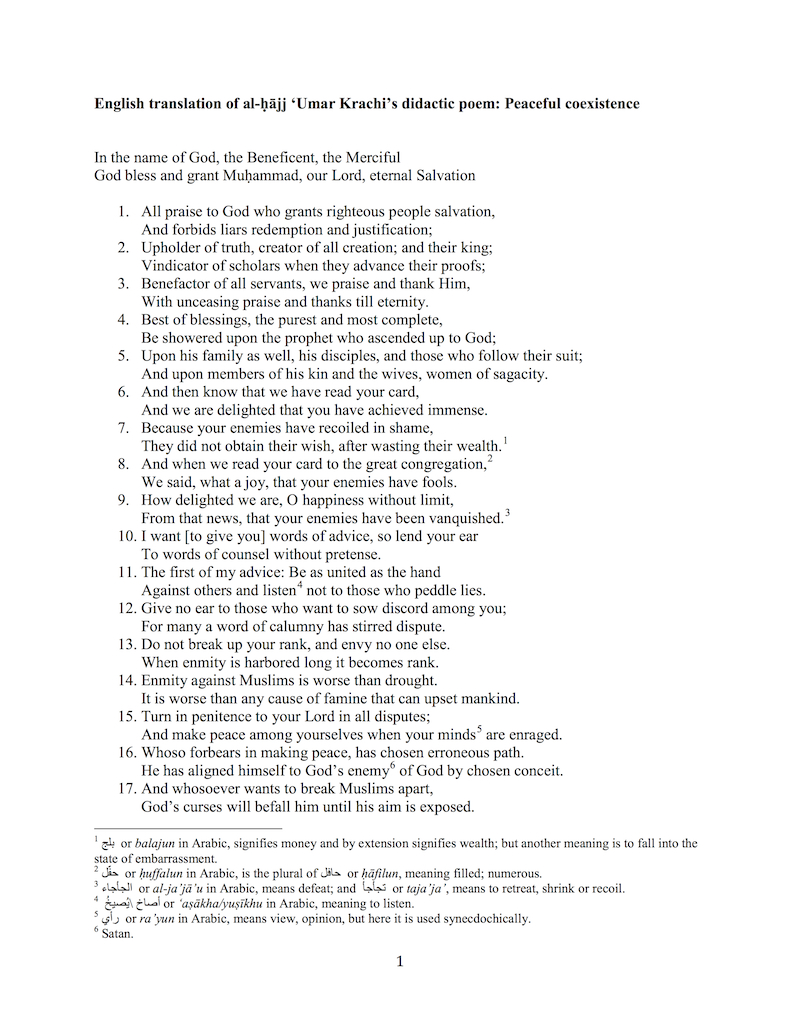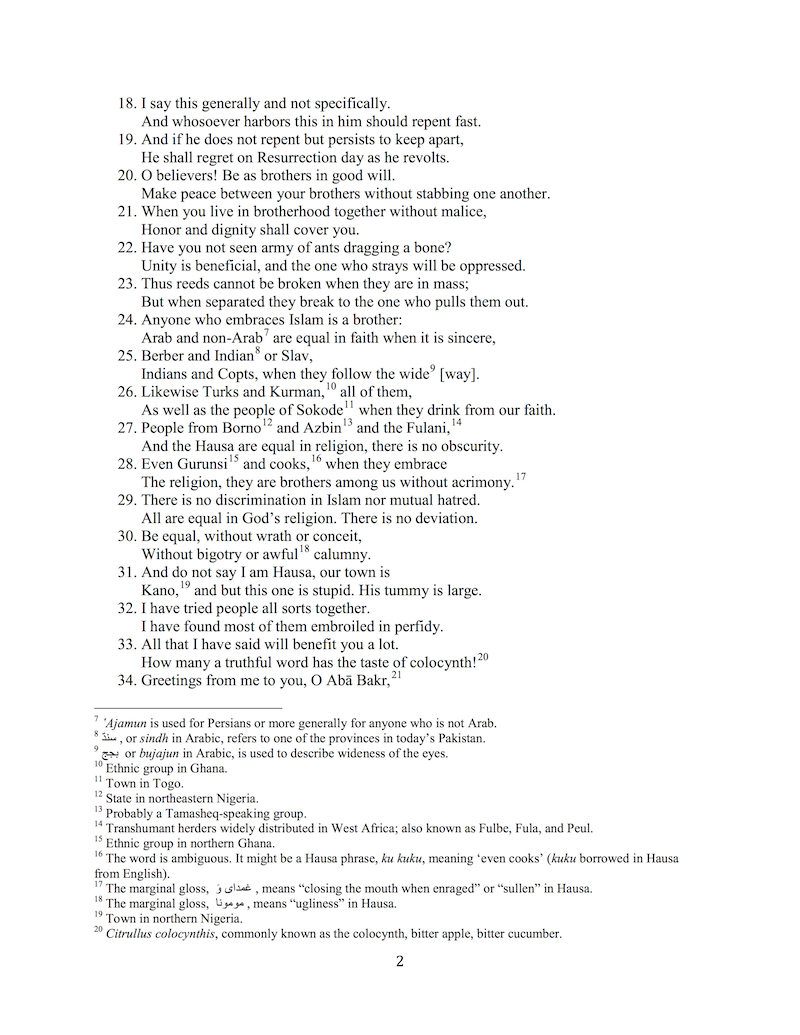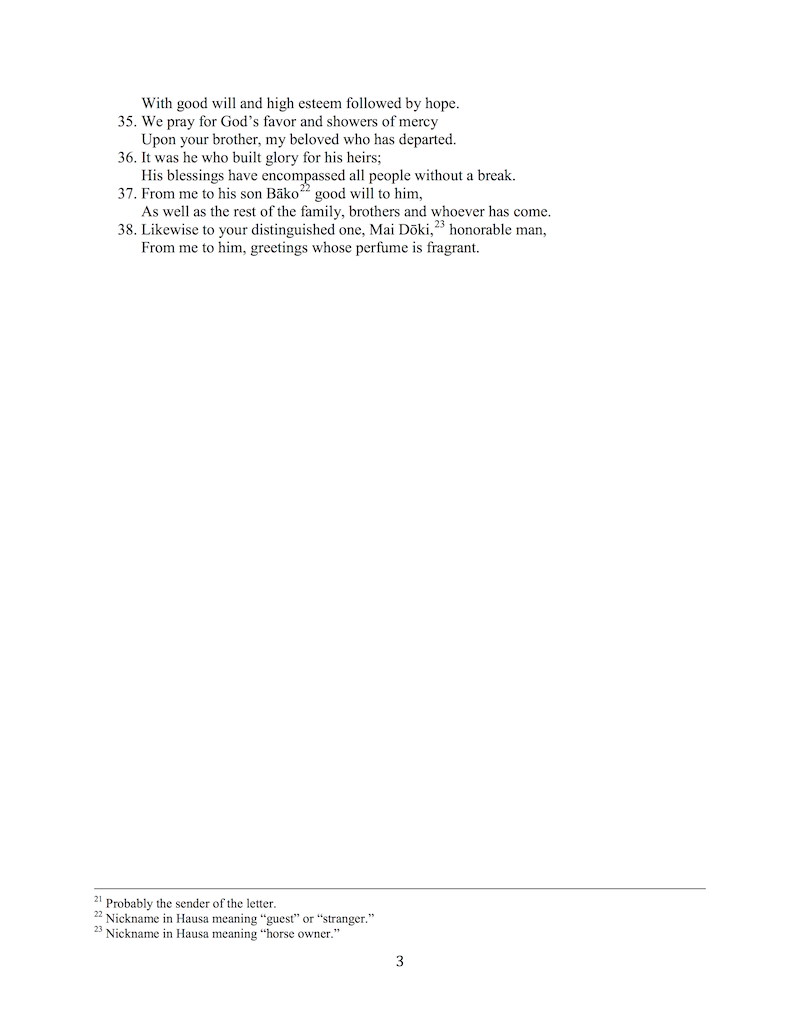Discourses of Muslim Scholars in Colonial Ghana
by John Hanson and Muhammad al-Munir Gibrill
Peaceful Coexistence (didactic poem)
Creator: al-ḥājj 'Umar ibn Abī Bakri of Kete-Krachi
Contributing Institutions: Muhammad al-Munir Gibrill; John H. Hanson; Institute of African Studies, University of Ghana at Legon; Northwestern University; MATRIX: The Center for Humane Arts, Letters & Social Sciences Online at Michigan State University
Contributor: Muhammad al-Munir Gibrill (translator and transcriber); John H. Hanson (reviewer)
Description: This didactical poem was composed by al-ḥājj 'Umar Krachi (al-ḥājj 'Umar ibn Abī Bakr) to counsel for peaceful coexistence among Muslims in West Africa. It was written to Abī Bakr, whom John Hunwick argues was al-ḥājj 'Umar's son (Arabic Literature of Africa, Volume 4: Writings of Western Sudanic Africa, compiled by John O. Hunwick with the assistance of Ousmane Kane, Bernard Salvaing, Rüdiger Seesemann, Mark Sey, and Ivor Wills, Leiden: Brill, 2003, p. 588).
The poem begins with an expression of delight at learning about the victory the addressee and his companions have won over unidentified adversaries. Al-ḥājj 'Umar then advises the recipient of the letter and the victorious community generally. He exhorts them to eschew any form of discrimination among Muslims irrespective of race, ethnic origin, class, or geographical provenance. He describes the relationship between Muslims as one built on mutual feelings of love towards one another and maintaining a unified front against adversaries. Mutual love, harmony and unity, however, are only possible when people do not harbor hatred for one another, but hold one another as brothers in Islam. He therefore calls for constant vigilance against discord and those who disseminate it.
The historical circumstances surrounding the poem are unknown. A strong ethnic undertone is evident in the discourse, suggesting the dispute involved ethnic tensions among Muslim communities. The poem employs familiar imageries to support his arguments with appeals to Islamic teachings and warnings against dissension and disobedience.
The poem is composed in the prosodic style of the classic Arabic qaṣīda. It is structured in the bāsiṭ meter that runs mustaf'ilun, fā'ilun,mustaf'ilun, fā'ilun/ mustaf'ilun, fā'ilun,mustaf'ilun, fā'ilun. Classical Arab poets such as al-Mutanabbī (915 – 965 CE) composed in this meter due to its staccato tempo and leisurely fall. Al-ḥājj 'Umar adds to the genre by rhyming with rare Arabic words, outside the purview of common usage by most Arab native speakers and writers.
Date: 1932
Date Range: 1930-1939
Location: Kete-Krachi, Volta Region, Ghana
Format: Text/pdf
Language: Arabic
Rights Management: Educational use only, no other permissions
Digitizer: MATRIX
Archive: University of Ghana at Legon, Institute of African Studies
Source:
University of Ghana at Legon, Institute of African Studies, Arabic collection, document number 132. The collection holds another copy: document number 462.







